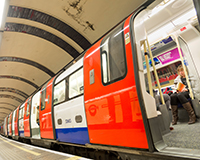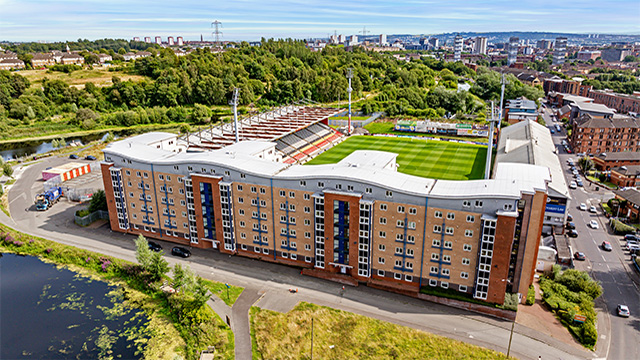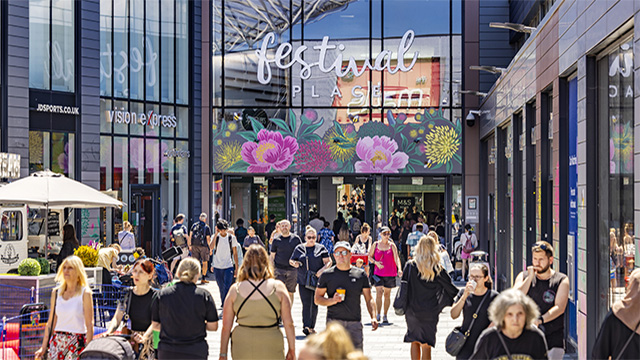London boards the Night Tube
London’s night tube is finally coming to the capital this weekend.
Delayed by nearly a year, it will stop at stations on the Central and Victoria lines from today with other lines joining in the autumn. Transport for London says the line will play a vital role in opening up London’s night-time economy, supporting almost 2,000 permanent jobs and boosting the economy by £360m.
Here from the archives is everything you need to know about its effect on business.
London’s night tube is finally coming to the capital this weekend.
Delayed by nearly a year, it will stop at stations on the Central and Victoria lines from today with other lines joining in the autumn. Transport for London says the line will play a vital role in opening up London’s night-time economy, supporting almost 2,000 permanent jobs and boosting the economy by £360m.
Here from the archives is everything you need to know about its effect on business.
https://twitter.com/MayorofLondon/status/766198382582984705
This article was first published on 10th July 2015
While unions this week fight over the cost to London Underground staff of the proposed 24-hour
weekend Tube service, forcing trains to grind to halt, Estates Gazette takes a look at just how vital the new timetable will be in making sure London maintains its position as a leading global city.
The service, which comes into force on 12 September and will initially operate across the Victoria, Central, Northern, Piccadilly and Jubilee lines, is expected to boost the UK economy by an estimated £360m and will enable the capital to compete with its US rival New York city, which has operated a 24-hour subway system for more than 110 years.
As social, cultural and working norms evolve, the capital’s dwellers, commuters and tourists have become increasingly nocturnal. Today, more than 7m employees – a quarter of the British workforce – work night shifts, and some 10% – more than 2.5m people – work at night on a regular basis.
And, according to researcher Latimer Appleby, an increasing number of consumers are choosing to shop at night too, with 40% of younger shoppers preferring to make their purchases after 7pm.
While night-time businesses are often blamed for fuelling binge-drinking and alcohol- and drug-related crime and all those other less than salubrious activities that go on during the hours of darkness, they are actually a valid and important contributor to the UK’s GDP, adding some £66bn to the nation’s coffers and employing more than 1.3m people.
The new Night Tube service will open up London to a host of opportunities to expand this contribution further, will allow businesses to accommodate new working patterns more easily and retail and leisure firms to react to the changing social patterns of an increasingly 24-hour population.
Businesses operating in and around Westminster will have the biggest opportunity, with more than 70,550 extra passengers expected to travel through Leicester Square and Piccadilly Circus as a result of the Night Tube. Camden, Lambeth and Kensington & Chelsea also look set to benefit, expecting 19,950, 16,050 and 8,550 extra passengers respectively.
Brian Bickell, chief executive of West End landlord Shaftesbury, says: “It will change the way people use the West End. It spreads the pressure a bit more and accommodates a shift in people’s shopping and eating habits towards a more continental model.”
Longer operating hours for bars, clubs, restaurants, cinemas, museums, shops and theatres are all expected to follow as the 24-hour network gets under way, which is what the new consumer, tourist and investor wants.
A report from recently established body the Night Time Industries Association, published last month, claims that a night-time economy is vital to London’s – and the UK’s – international standing. Of the 1.5bn day visits to the UK last year, 300m had a meal or night out as their main focus and, of the £52bn spent on day visits, some 21% went on night- related activities.
“Some of the most successful international cities, such as Barcelona, Berlin, New York and Sydney, have enhanced their status and position because their cultural activities and experiences are perceived as vibrant and exciting,” states the Night Time Industries Association report. “It is no coincidence that all these successful cities are also 24-hour urban environments.”
New West End Company deputy chief executive Jace Tyrell agrees. “Shoppers are doing much later shopping, particularly at key trading periods,” he says. “And with 25% of our shoppers being international, we have to offer the same sort of evening economy as New York, Hong Kong and Paris.”
Although the extension of the Tube’s hours of operation is likely to continue to cause dissatisfaction among its highly unionised workforce, its importance in maintaining and creating new jobs in the capital and attracting investment, business and tourism cannot be underestimated.
And as technology and working patterns shift, blurring conventional timelines, London cannot afford to be caught snoozing.
chris.berkin@estatesgazette.com











